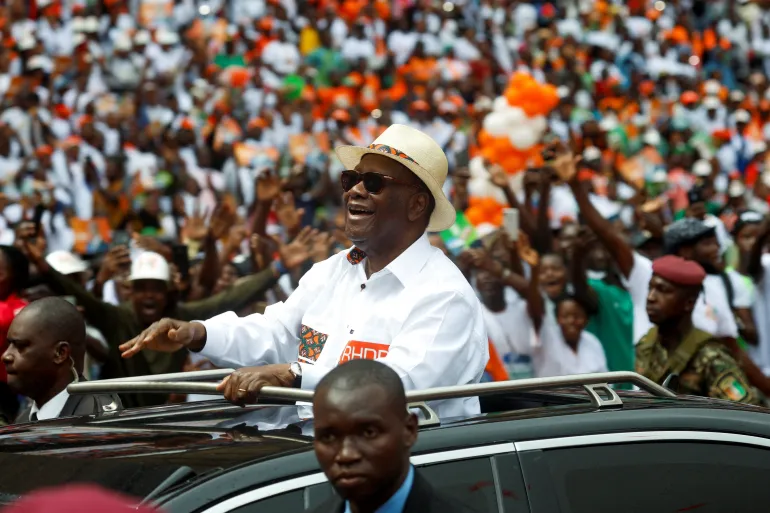
President Alassane Ouattara of Côte d’Ivoire has officially declared his candidacy for the 2025 presidential election, confirming months of speculation and setting the stage for a contentious political season.
The 83-year-old made the announcement in a nationally televised address on Tuesday, July 29, saying his decision stems from a duty to safeguard the country’s peace and prosperity.
“I am a candidate because I want our dear Côte d’Ivoire to continue to remain a prosperous country, in peace and security,” Ouattara stated during his address.
The announcement was orchestrated by the ruling Rally of Houphouëtists for Democracy and Peace (RHDP), whose leadership had been vocally advocating for Ouattara’s candidacy. On June 29, in his absence, the RHDP’s extraordinary congress unanimously endorsed him as their nominee, describing him as a stabilizing force amid growing insecurity in the Sahel and West Africa.
“President Ouattara is our shield, our visionary, the man who transformed Côte d’Ivoire,” declared Gilbert Koné Kafana, chairman of the RHDP board.
However, the candidacy is reigniting deep political divisions. Ouattara, currently serving his third term, was re-elected in 2020 under a constitutional amendment adopted in 2016—an act critics argue contradicts the spirit of term limits. His previous re-election sparked mass protests, a boycott from the opposition, and over 80 deaths, leaving a scar on the nation’s democratic history.
This renewed bid could once again heighten tensions. The political landscape is already fragile, with major figures such as Tidjane Thiam and former President Laurent Gbagbo disqualified from running. Though both are pursuing legal avenues to be reinstated, their return remains uncertain.
Other opposition candidates, including Simone Ehivet Gbagbo, Pascal Affi N’Guessan, and Jean-Louis Billon, are preparing to contest but must secure the necessary sponsorships. Behind the scenes, efforts to unify opposition forces are underway, but remain hindered by past divisions and state pressure.
With the first round set for October 25 and candidate submissions closing by the end of August, all eyes are on the Independent Electoral Commission and the Constitutional Council, whose roles will be pivotal in ensuring a credible vote.
Ouattara’s renewed bid, set against a backdrop of regional instability and democratic backsliding, adds further weight to an already high-stakes election. “My health allows it, my conscience requires it,” he concluded—words aimed at reassuring a nation, but unlikely to quell growing concerns about the country’s democratic future.



